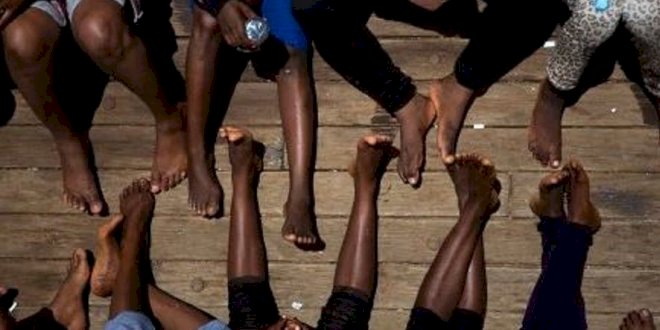50 Trafficked Nigerian Women Rescued from Lebanon
The women have been mandatorily quarantined

Fifty trafficked Nigerian women have been rescued from Lebanon and returned to their home country.
Per reports from BBC, the women have been placed in quarantine as a precaution against coronavirus and will be interviewed about their experiences.
The Nigerian Foreign Ministry said the Lebanese authorities had assisted in securing the women's release.
Last year, a Nigerian woman was freed from forced labour in Lebanon.
A further 15 Nigerians, stranded in Lebanon due to lockdowns, have also been repatriated.
Abuse on Immigrant Workers
Lebanon had come under the media’s lens following reports of domestic abuse on immigrant workers
Two months ago, A Ghanaian lady in Lebanon was found dead hours after sharing a desperate message about the abuse she was suffering at the hands of her Lebanese employers.
Per reports from Aljazeera, the deceased had shared her recurrent abuse with an activist group – This Is Lebanon – before she was found dead on March 14, 2020.
Last month, Lebanese security forces arrested a man suspected of putting a Nigerian domestic worker up "for sale" on a popular Facebook page used to trade everyday items such as furniture, food and shoes.
"Domestic worker of African citizenship (Nigerian) for sale with a new residency and full legal papers," an account under the name Wael Jerro posted on the page, named Buy and Sell in Lebanon. The exact date of the post remains unclear.
READ ALSO:
Man Arrested for Putting Nigerian Worker ‘Up For Sale’ in Lebanon
'Modern-day slavery'
Some 250,000 migrant domestic workers - most from sub-Saharan African countries such as Ethiopia and Ghana, and Southeast Asian countries including Nepal and the Philippines - reside in Lebanon.
Domestic workers in Lebanon are legally bound to their employers through the country's notorious kafala system, which only allows them to end their contracts with the consent of employers.
The system has led to widespread abuse, ranging from the withholding of wages, to physical and sexual assault. Camille Abousleiman, Lebanon's former labour minister, has called it "modern-day slavery".
While Lebanon's Ministry of Labour says it is working to improve protection for domestic workers by amending the contract between them and their employers, experts say the abuse will continue until the kafala system is entirely abolished.
"Adopting a revised contract which addresses shortcomings is undoubtedly a step forward, but it's not enough," Diala Haidar, a Lebanon campaigner at Amnesty International, told Al Jazeera.
"The Lebanese labour law explicitly excludes domestic workers from labour protections enjoyed by other workers such as minimum wage, overtime pay, compensation for unfair dismissal, and social security. The labour law needs to be amended to recognise domestic workers as workers and grant them full labour protections," she said.




































